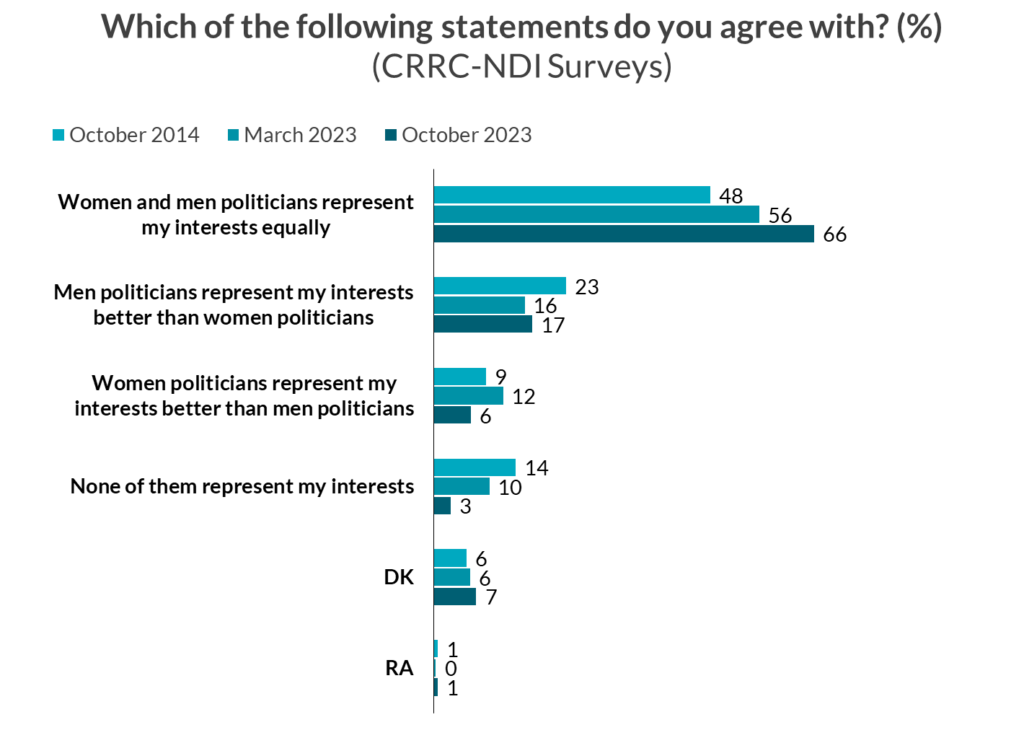პოლიტიკა
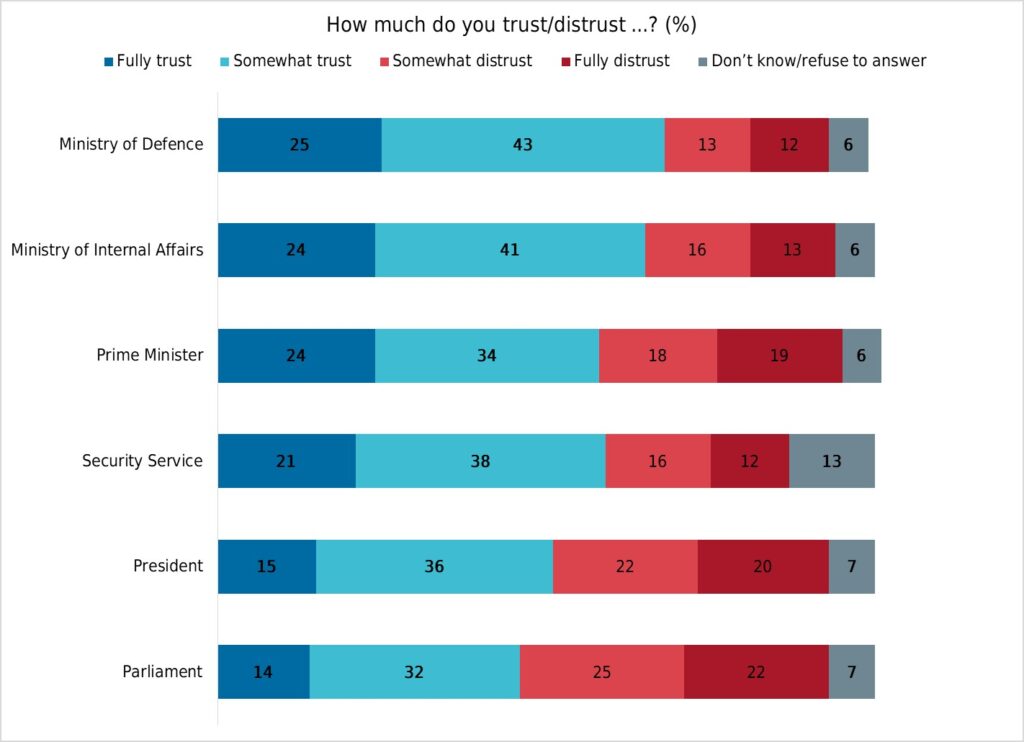
A CRRC survey found that trust in Georgia’s Interior Ministry and the police is closely tied to perception of the ministry’s political independence, or lack thereof.
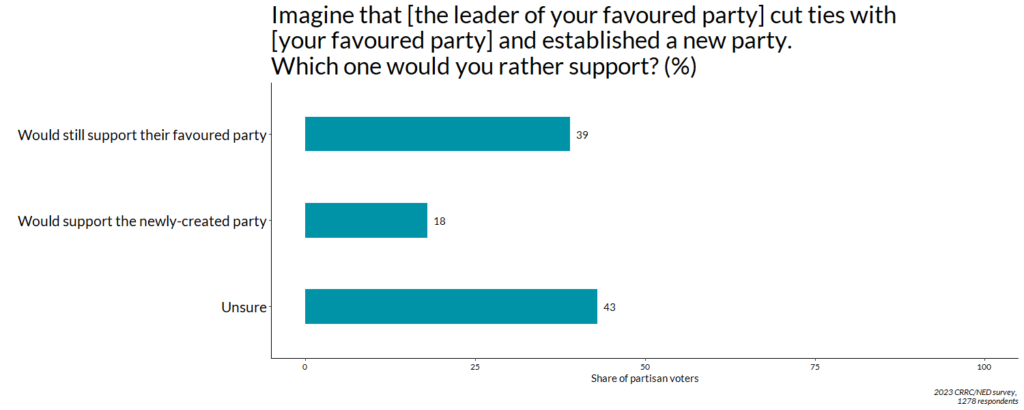
A year before Georgia’s general elections, a CRRC survey found that less than half of surveyed Georgian partisans would remain loyal to their favoured party if its leader were to establish a new party, with supporters of the ruling party…
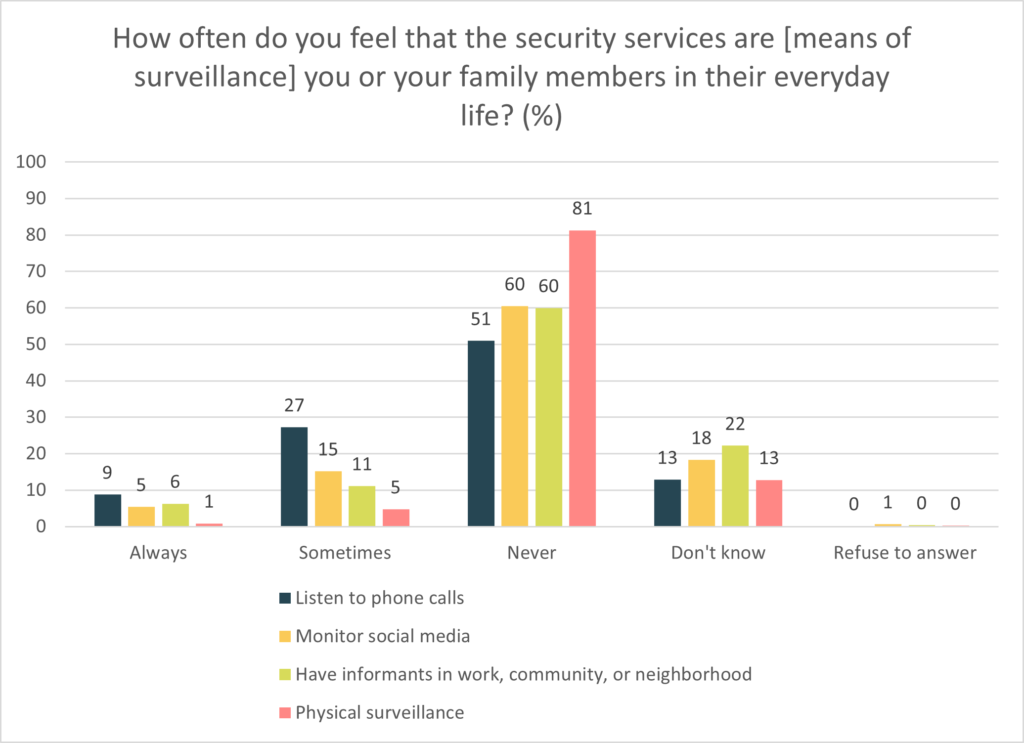
Nearly half of the Georgian public think that they or their family members are under government surveillance at least some of the time.
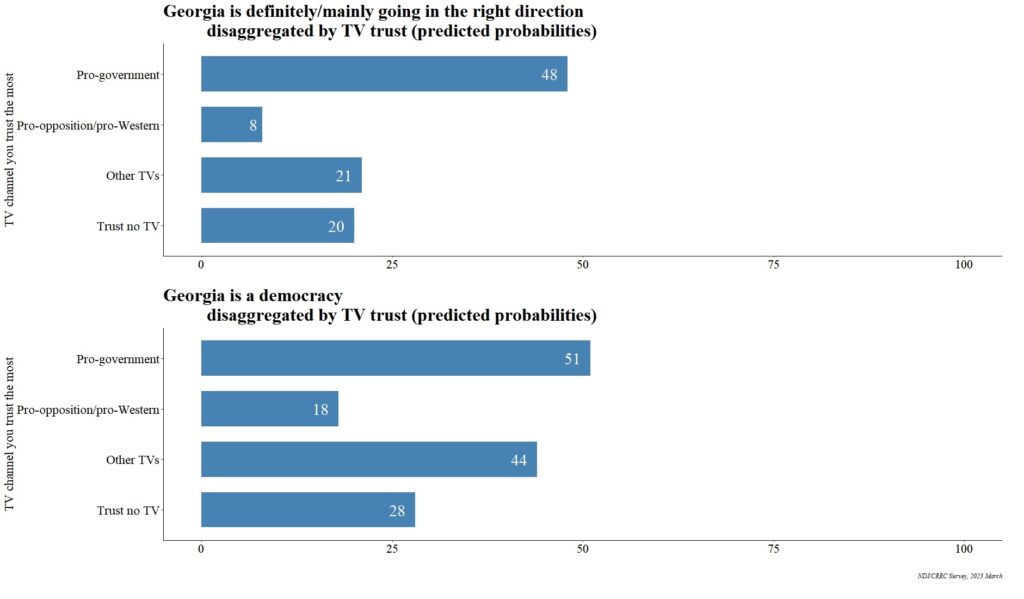
A recent NDI/CRRC survey suggests that Georgians have markedly different beliefs about the present state and future of their country, regardless of their party sympathies, depending on whether the television channel they trust is pro-government or pro-opposition.
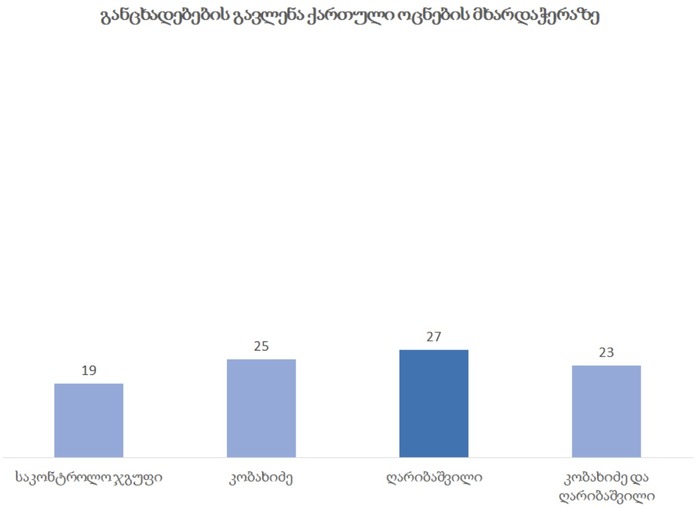
CRRC Georgia-ს კვლევამ აჩვენა, რომ ქართული ოცნების უფრო ზომიერად პოზიციონირებამ, ვიდრე მისი სპინ-ოფ ჯგუფი ხალხის ძალაა, მმართველი პარტიის მხარდაჭერა გაზარდა.
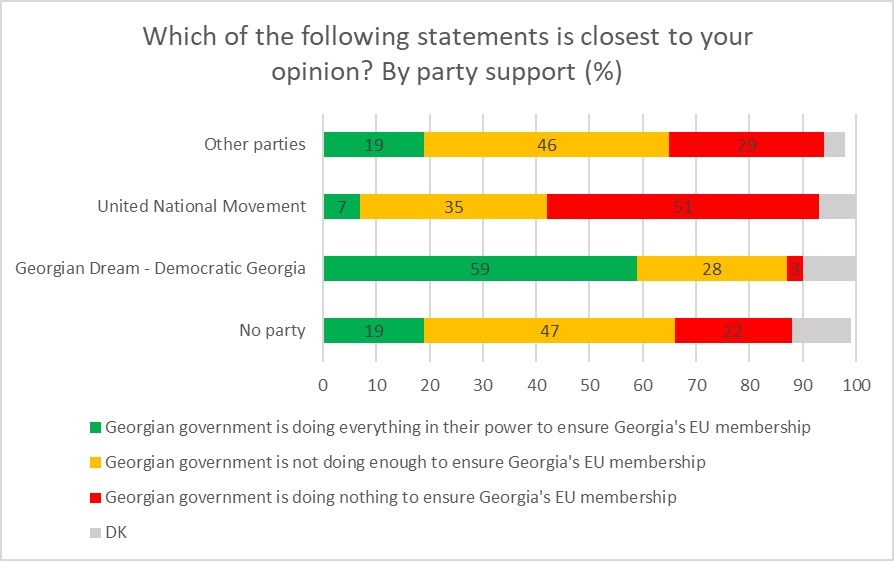
CRRC Georgia data suggests that while the majority of Georgians want to join the EU, they are largely split along partisan lines on whether their government is doing enough to secure the country’s candidate status.
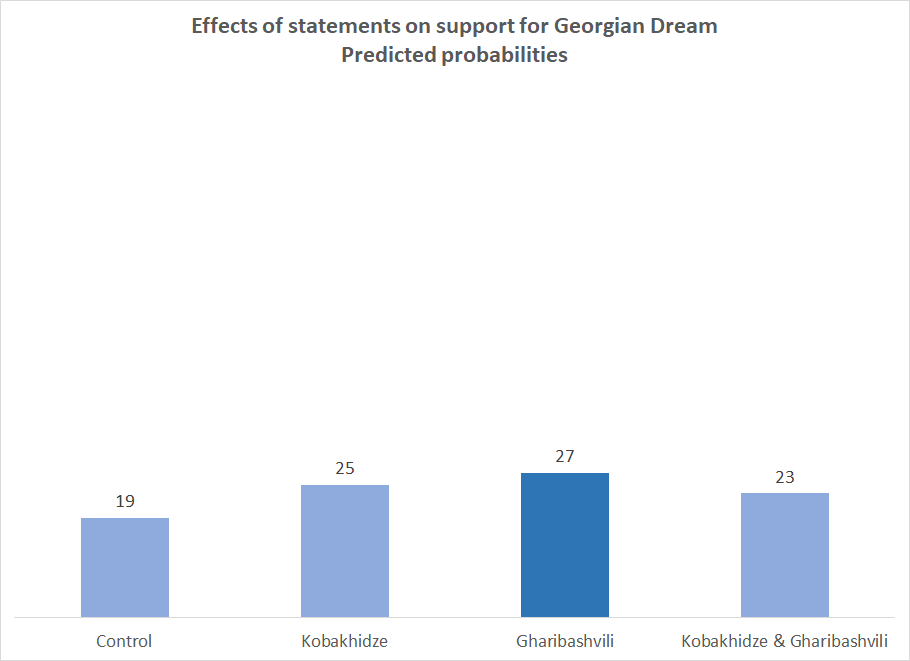
A CRRC Georgia study found that positioning Georgian Dream as more moderate than its spin-off group, People’s Power, increased support for the ruling party.
